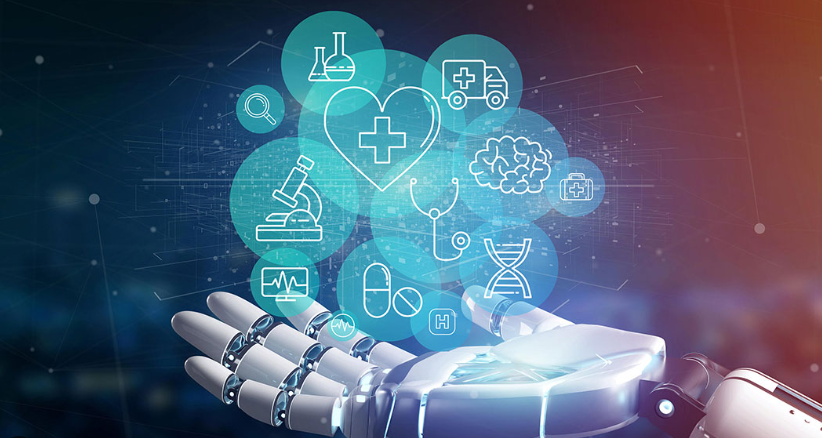
Once upon a digital era, in the vast realm of healthcare, a silent yet potent force named AI began to transform the narrative. Artificial Intelligence, akin to a virtuoso in an orchestra, is orchestrating a symphony of changes across the sector. As a clinical research professional narrating this saga, I’ve witnessed AI not as a replacement but as a complement to human expertise. It’s a tale of four monumental disruptions, each a chapter of innovation that promises a healthier tomorrow.
Predictive Analytics: The Crystal Ball of Healthcare In the tableau of medical care, predictive analytics stands as a seer, with AI as its crystal ball. Here’s how AI is casting its predictive spells:

As detailed by Forbes, this foresight allows for a proactive approach to health, shifting the focus from treatment to prevention.
Virtual Assistants: Your Health’s Constant Guardians Just like guardians of lore, AI virtual assistants stand vigilant, offering round-the-clock care support:
- Engagement: They converse with patients, providing information and companionship.
- Medication Adherence: Reminders for medications are sent, ensuring timely intake.
- Monitoring: Continuous patient monitoring alerts staff to any urgent needs.
- Support: They offer emotional support, mitigating feelings of isolation.
Devry University highlights their pivotal role in enhancing patient care without the constraints of human fatigue.
Personalized Treatment: The Couturier of Healthcare Personalized treatment plans are akin to made-to-measure garments, designed by AI to fit the unique contours of each patient’s health narrative:

This bespoke approach to healthcare, as illuminated by Harvard’s Postgraduate Medical Education, ensures treatments are as individual as the patients themselves.
Enhanced Medical Imaging: The Lens That Sees More AI has revolutionized medical imaging, providing a lens that reveals more than ever before:
- Detection: Unveils subtle signs of disease that escape the naked eye.
- Analysis: AI algorithms analyze images with superhuman speed and precision.
- Diagnosis: Supports radiologists in making faster, more accurate diagnoses.
- Follow-up: Ensures meticulous monitoring of disease progression over time.
The insights from Medium showcase how AI in medical imaging is not just an enhancement but a transformative tool in diagnosis.
In the ongoing chronicle of healthcare, AI is not a shadow but a beacon, casting light on the path to a healthier world. As we turn the pages of this evolving narrative, let’s marvel at how AI’s disruption is not a tale of technology alone, but a story of human triumph, enabled by the digital renaissance. Join me in embracing the AI revolution, where every byte of data, every predictive model, and every AI assistant is a step toward a future where healthcare is more intuitive, more precise, and most importantly, more accessible.
